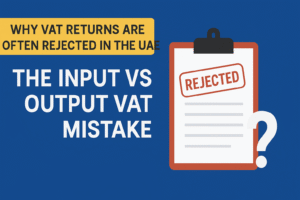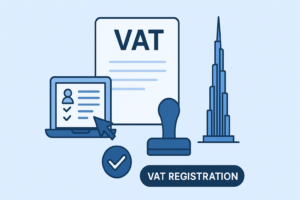Corporate tax is one of the most significant financial obligations for any business. It directly affects profitability, cash flow, and long-term growth strategies. Whether you run a small enterprise or a multinational corporation, understanding how corporate tax works—and how it impacts your operations—is essential for sound financial planning and compliance.
This article explains what corporate tax is, how it functions, its implications for businesses, and strategies to manage your corporate tax efficiently.
What Is Corporate Tax?
Corporate tax is a tax imposed by the government on the net income or profit of corporations. It’s calculated after deducting all allowable business expenses, such as operational costs, salaries, depreciation, and interest payments, from total revenue.
The corporate tax rate varies by country and sometimes by business sector. For example, some governments offer lower rates for startups or small businesses to encourage entrepreneurship.
Essentially, corporate tax is a way for governments to generate revenue from companies operating within their jurisdiction.
How Corporate Tax Works
Corporate tax is levied on a company’s taxable income, which is determined as follows:
Taxable Income = Gross Revenue – Allowable Deductions
Allowable deductions may include:
- Employee wages and benefits
- Rent and utilities
- Depreciation of assets
- Business travel expenses
- Cost of goods sold (COGS)
- Charitable contributions (within limits)
Once the taxable income is calculated, the applicable corporate tax rate is applied to determine the total tax liability.
For instance, if a business has a taxable income of $500,000 and the corporate tax rate is 25%, the tax payable will be $125,000.
Types of Corporate Taxes
Corporate tax systems may vary depending on jurisdiction, but they usually fall into the following categories:
- Flat Corporate Tax Rate:
A single rate is applied to all corporate income, regardless of the company’s size or revenue. - Progressive Corporate Tax Rate:
The tax rate increases as the company’s income increases, similar to personal income tax brackets. - Territorial Tax System:
Corporations pay tax only on income earned within the country. - Worldwide Tax System:
Corporations are taxed on their global income, with possible deductions for foreign taxes paid.
Importance of Corporate Tax Compliance
Compliance with corporate tax laws is not optional—it’s mandatory. Failing to file or pay corporate taxes on time can result in severe penalties, interest charges, or even legal action.
Proper tax compliance helps businesses:
- Avoid legal and financial penalties
- Build a strong corporate reputation
- Maintain investor confidence
- Ensure long-term business sustainability
Businesses are often required to file annual tax returns, maintain proper accounting records, and sometimes undergo audits by tax authorities.
How Corporate Tax Impacts Your Business
Corporate tax affects nearly every financial aspect of a company. Here are some of the main ways it can impact your business:
1. Profitability
Corporate taxes reduce the net profit of a company. A higher tax rate means less profit available for reinvestment, dividends, or expansion.
2. Cash Flow
Regular tax payments can affect your company’s liquidity. Proper cash flow management ensures you have enough funds to meet tax obligations without disrupting operations.
3. Investment and Growth
High corporate tax rates can discourage investments and expansion. Companies may delay or cancel projects if after-tax returns are too low.
4. Business Decisions
Corporate tax influences major business decisions such as mergers, acquisitions, or relocations. Some businesses may move operations to countries with lower tax rates to optimize profits.
5. Shareholder Returns
Since corporate taxes reduce the profits distributed as dividends, shareholders are directly affected. Lower corporate taxes often lead to higher returns for investors.
Corporate Tax Planning Strategies
Effective tax planning can help businesses minimize liabilities while staying compliant. Here are key strategies to consider:
- Maximize Allowable Deductions:
Ensure all eligible business expenses are properly recorded and deducted to reduce taxable income. - Use Tax Credits and Incentives:
Governments often provide tax incentives for research and development (R&D), renewable energy projects, and job creation. Take advantage of these benefits. - Choose the Right Business Structure:
Different business entities (LLC, partnership, corporation) have different tax implications. Selecting the right one can lead to significant savings. - Reinvest Profits:
Reinvesting profits in business growth or asset acquisition can reduce immediate tax liabilities while boosting long-term productivity. - Work with Tax Professionals:
Hiring an experienced tax consultant ensures compliance and helps identify potential savings opportunities.
The Role of Corporate Tax in the Economy
Corporate tax is not just a burden; it plays an essential role in supporting economic development. The revenue generated helps fund public infrastructure, healthcare, education, and other essential services.
Moreover, fair and transparent corporate taxation fosters trust in the economic system, ensuring that all businesses contribute to national development.
Challenges Businesses Face with Corporate Tax
While corporate taxation is necessary, businesses often face challenges such as:
- Complex tax laws and frequent policy changes
- Difficulties in managing international tax obligations
- High administrative and compliance costs
- Risk of audits and penalties for minor errors
To overcome these challenges, companies should invest in modern accounting systems and seek guidance from qualified tax advisors.
How to Stay Compliant with Corporate Tax Regulations
Here are some best practices for staying compliant and avoiding unnecessary complications:
- Keep accurate and up-to-date financial records
- File tax returns before the deadline
- Understand local and international tax requirements
- Conduct regular internal tax audits
- Stay informed about changes in tax laws
Final Thoughts
Corporate tax is an unavoidable but manageable part of doing business. Understanding how it works—and planning accordingly—can significantly impact your company’s financial health, growth, and sustainability.
By adopting smart tax planning strategies, maintaining compliance, and leveraging available incentives, businesses can reduce their tax burden while remaining fully compliant with the law. In the long run, responsible tax management not only benefits your business but also contributes to the overall economy.





